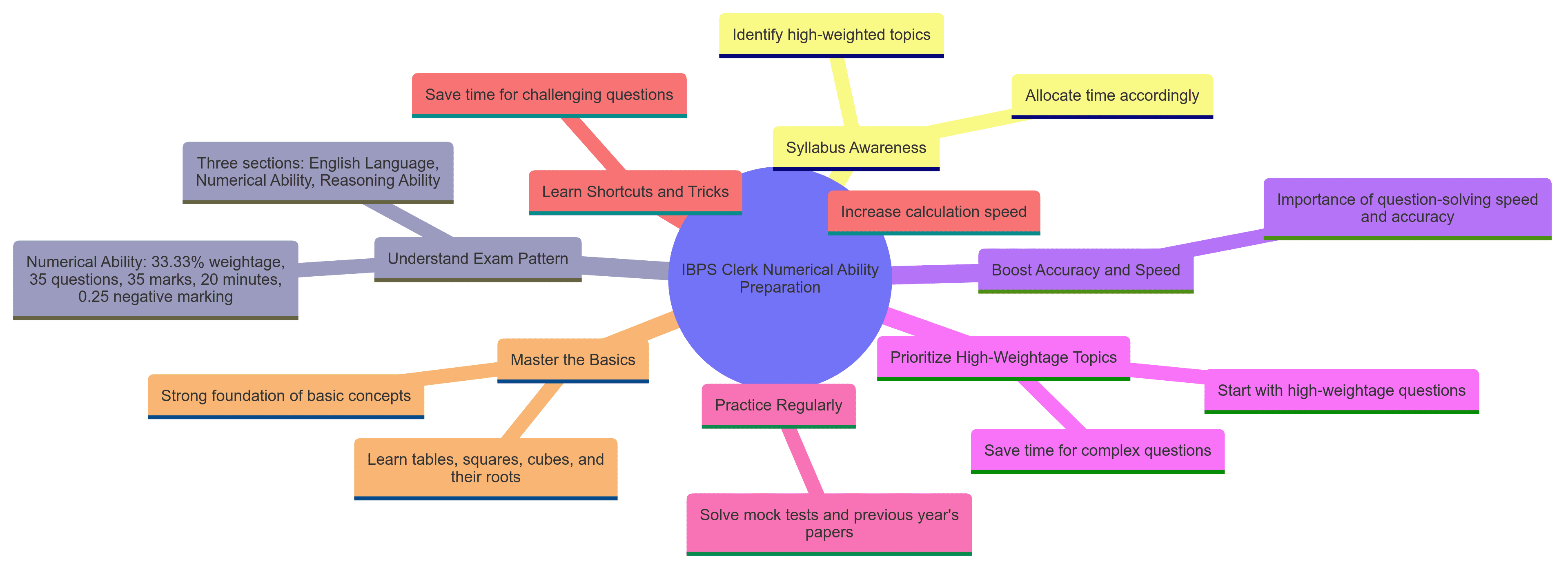Numerical Ability for IBPS Clerk 2024 Exam: Scoring high marks in the Numerical Ability section can increase your overall marks and chances of clearing the IBPS Clerk exam. This section covers a variety of topics, from basic arithmetic to core concepts like percentages, profit and loss, simple and compound interest, averages, time and work, etc. You can ensure strong performance by understanding the IBPS Clerk syllabus and putting in focused practice.
Also Check,
| IBPS Clerk Salary 2024 |
| IBPS Clerk Syllabus 2024 |
| IBPS Clerk Salary 2024 |
| Reasoning Ability for IBPS Clerk |
With the focused practice of topics like ratio and proportion, time and work, percentages, profit & loss, number series, etc., candidates can excel in this section and secure their dream banking career. Read on for complete details on IBPS Clerk Numerical Ability Important Topics, tips & tricks, and much more.
IBPS Clerk Numerical Ability Important Topics
The IBPS Clerk prelims syllabus consists of three sections, such as numerical ability, reasoning ability, and English language. Numerical ability is one of the crucial sections asked in both the preliminary and main exams. Having conceptual clarity of all the IBPS Clerk Numerical Ability important topics will help you excel in the exam. Here is the list of important topics for the IBPS Clerk Numerical Ability section shared below.
| Ratio and proportion | Logarithms | Line charts |
| Averages | Permutations and Combinations | Tables |
| Speed | Simple and compound interest |
Profit Loss and Discount |
| Distance and time | Percentages | Mensuration |
| Mixture and allegation | Partnership | Elements of Algebra |
| Stocks and shares | Clocks |
Equations, Probability |
| Time and work | Volume and Surface Area | Data Interpretation |
| Height and Distances | Bars & Graphs | Pie charts |
Tips and Tricks to Cover IBPS Clerk Numerical Ability Important Topics
The IBPS Clerk Numerical Ability section assesses your mathematical foundation, accuracy, speed and problem-solving skills. You must learn the fundamentals of the Numerical Ability section to excel in the exam. Here are some tips to help you cover IBPS Clerk Numerical Ability Important Topics.

Understand the IBPS Clerk Exam Pattern: The IBPS Clerk prelims exam is divided into three sections: English Language, Numerical Ability, and Reasoning Ability. The Numerical Ability section carries 33.33% weightage and you are required to solve all the questions in 20 minutes. The Numerical Ability section carries a total of 35 objective-type questions for 35 marks. Additionally, there is a negative marking of 0.25 marks for each wrong answer.
Check the IBPS Clerk Numerical Ability Syllabus: Candidates must be familiar with the IBPS Clerk Numerical Ability syllabus before planning their preparation strategy. It helps you identify high-weighted topics and allocate time to each topic accordingly.
Boost Accuracy and Speed: The IBPS Clerk Numerical Ability section is one of the toughest sections and there is a fixed time limit to solve all the questions. So, it is important to have good question-solving speed and accuracy.
Prioritise High-Weightage Topics: Since there is section-wise timing in the IBPS Clerk exam, it is recommended to start solving high-weightage questions first. This will allow you to save time for complex questions.
Practice Regularly: Regular practice is important to revise the concepts of the IBPS Clerk Numerical Ability section. Solve a wide range of questions from mock tests and previous year's papers to identify your strengths and weaknesses.
Learn Shortcuts and Tricks: Some shortcuts and tricks can increase your calculation speed and help you solve numerical ability questions quickly and correctly. You can save time for challenging questions by learning these short-cut tricks.
Master the Basics: The candidate must build a strong foundation of all the basic concepts, such learning tables upto 30, square and square roots upto 30, cube and cube roots upto 20. Review attributes, shortcuts, and formulae to answer issues quickly.
Attempt IBPS Clerk Mock Test based on latest exam pattern
Comments
All Comments (0)
Join the conversation